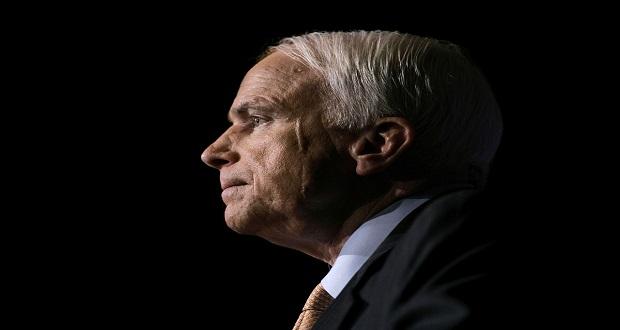
In this time of alarming political polarization, I am often asked what inclusion looks like. How can we hope to embrace the tenets of inclusion when the world seems to be gridlocked in hopeless, and often hateful “us and them” rhetoric? No aspect of our world is more polarized than the political sphere.
Senator John McCain (R-AZ), career politician, statesman, veteran, even in death, continues to show us what inclusion looks like. He chose two of his political opponents— former Presidents Barack Obama and George W. Bush to speak at his funeral. Why would he do this? I believe it is to demonstrate the respect he had for these individuals even if he was defeated by both of them in presidential races. He disagreed with many of Obama’s positions and was defeated by George Bush in the 2000 primaries. However, John McCain knew that inclusion was about listening to different ideas to find the common ground so that the differences could be approached from the starting point of where we agree, not where we disagree.
Senator McCain recognized that George W. Bush, a Republican like himself, and Barack Obama, a Democrat stood for the same American values that he did. In his farewell letter to the American people Senator McCain said: “We are 325 million opinionated, vociferous individuals. We argue and compete and sometimes even vilify each other in our raucous public debates. But we have always had so much more in common with each other than in disagreement. If only we remember that and give each other the benefit of the presumption that we all love our country, we will get through these challenging times.”
Former President Barack Obama spoke about the “common ground” that he and Senator McCain shared by saying this: “John McCain and I were members of different generations, came from completely different backgrounds, and competed at the highest level of politics,” he wrote. “But we shared, for all our differences, a fidelity to something higher – the ideals for which generations of Americans and immigrants alike have fought, marched, and sacrificed.”
Senator McCain said in his letter “And I owe it to America to be connected to America’s causes: Liberty, equal justice, and respect for the dignity of all people… Our identities and sense of worth were not circumscribed, but are enlarged by serving good causes bigger than ourselves.
Inclusion is about respecting the dignity of all people, civility, integrity, compassion, acceptance and a lot of listening and learning. John McCain demonstrated these values. The example of respect that is circulating a lot in the media is when he challenged one of his supporters during the 2008 presidential campaign who claimed that the then Senator Obama was not an American. While his response was not perfect because some interpreted it as anti-Arab, most liked the fact that McCain took the mic from the woman and said that he admired and respected his opponent as a “decent family man.” The controversial part is when he said “he is not an Arab” (I am not sure that his intent was to be anti-Arab but it was clearly the impact for many). The inclusive aspect was that he would not demean his opponent.
An example of his integrity and willingness to listen to different viewpoints, Senator McCain responded this way to reporters during the 2008 campaign who asked about him changing his positions: “ Look, none of my principles or values have changed. Have I changed position on some specific issues because of changed circumstances? I would hope so! I would hope so!”
Senator McCain and Obama agreed that politics was about debating different ideas without compromising principles and the ability to disagree without being disagreeable.
In 2007 when Obama launched his presidential campaign, he said this about his time in the Illinois legislature: “It was here we learned to disagree without being disagreeable — that it’s possible to compromise so long as you know those principles that can never be compromised; and that so long as we’re willing to listen to each other, we can assume the best in people instead of the worst.”
In my book, We Can’t Talk About That At Work: How to Talk About Race, Religion, Politics and Other Polarizing Topics, I assert that common ground is only possible when there is trust, a willingness to listen to those with whom you disagree for the purpose of understanding not to win the argument and a goal of reciprocal empathy. We won’t know what we have in common unless we are willing to empathetically talk about our differences by starting with our commonalities, of which I conjecture there are many. Let’s start with what I have heard both Barack Obama and Senator McCain say: “We all love this country and we all want the best for our families.”
Inclusion at its best is when we can embrace our differences not as problems to be fixed but ideas to study and understand better and our similarities as the common ground we need to begin to respectfully explore those differences. Senator John McCain is a shining example of inclusion. I am hopeful that we will continue to learn from him in our difficult pursuit to Live Inclusively®.


















